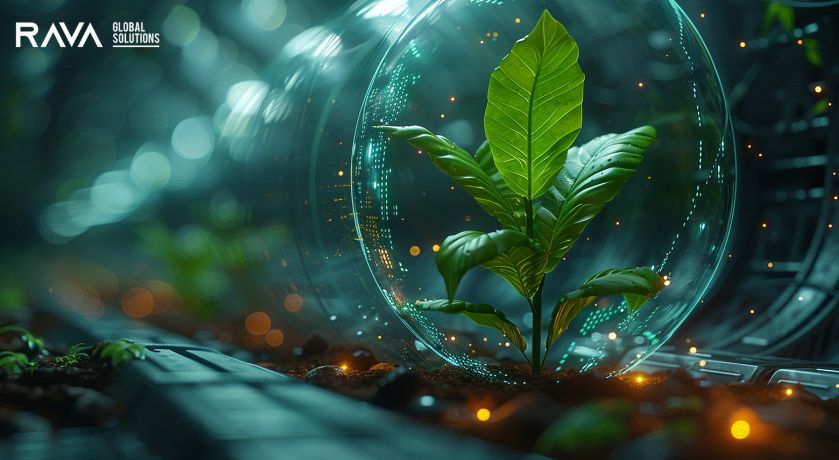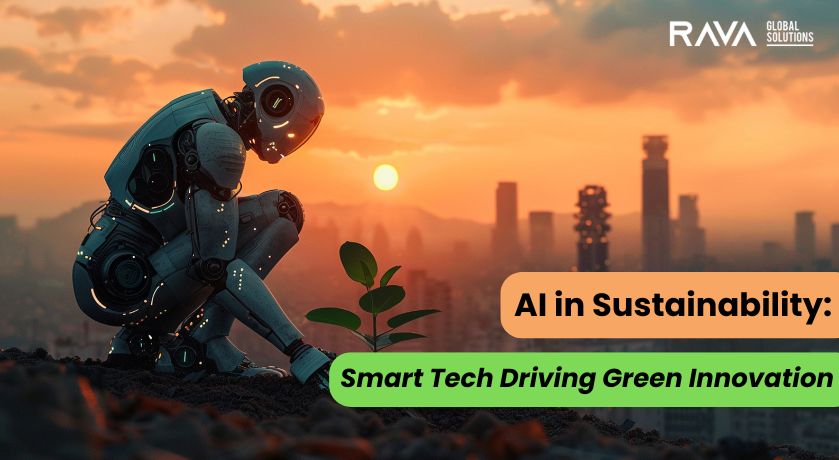Sustainability is no longer a peripheral goal for businesses and governments—it’s a strategic priority. As the pressure to meet climate targets grows, artificial intelligence (AI) has emerged as a critical ally in achieving environmental sustainability. From optimizing energy use to revolutionizing waste management, AI is making it possible to embed intelligence into the very infrastructure of green innovation.
Smarter Energy Management
AI-driven systems are helping organizations monitor, predict, and control energy consumption with unparalleled precision. Machine learning algorithms analyze vast streams of real-time data from sensors in buildings, grids, and industrial equipment. These insights allow for dynamic adjustments to reduce waste, balance supply and demand, and integrate renewable energy sources more effectively.
For instance, smart grids powered by AI can automatically divert energy loads, predict peak usage times, and incorporate weather data to maximize the use of solar and wind energy. Companies are also using AI to manage heating, ventilation, and air conditioning (HVAC) systems, achieving energy savings of up to 30%.
Optimizing Supply Chains
Sustainable supply chains require real-time visibility and predictive intelligence—two areas where AI excels. AI helps track emissions across the logistics lifecycle, identify inefficiencies, and propose alternatives that reduce environmental impact.
In manufacturing, AI models simulate product designs and production methods to minimize material usage and waste. Predictive analytics also helps businesses avoid overproduction, reducing excess inventory and the carbon footprint associated with storage and transport.
Revolutionizing Agriculture
Precision agriculture is transforming the way food is grown and harvested, and AI is central to this shift. AI-powered drones and sensors gather soil data, monitor crop health, and predict weather conditions. This information is used to guide irrigation, fertilization, and harvesting, ensuring optimal use of resources while reducing environmental damage.
Farmers can now use AI platforms to detect pests and diseases early, reducing the need for chemical treatments. These technologies not only increase crop yields but also support regenerative agriculture practices that restore soil health and biodiversity.
Enhancing Waste Management and Recycling
Waste sorting and recycling are being reinvented with AI. Smart robots equipped with computer vision can identify and separate recyclables from waste streams more accurately than human workers. This improves recycling rates and ensures higher purity of recycled materials.
AI is also used to predict waste generation patterns, helping municipalities and organizations plan more efficient collection routes and reduce landfill dependency. In industrial contexts, AI models can identify ways to reduce byproducts and reintroduce waste into the production cycle as raw material.

Monitoring Environmental Impact
AI enhances our ability to monitor and respond to environmental changes. Satellites, drones, and sensors capture data about deforestation, ocean health, air quality, and wildlife movements. AI systems process this data at scale, providing actionable insights for conservation efforts, disaster preparedness, and climate modeling.
By identifying patterns that humans might miss, AI enables quicker interventions. For example, AI tools are being used to detect illegal logging in real time or to predict the migration patterns of endangered species to inform protective measures.
The Role of RAVA Global Solutions in Sustainable Innovation
RAVA Global Solutions understands that sustainability and technology are no longer separate conversations. As a provider of cutting-edge Business Process Solutions, RAVA integrates AI and data-driven intelligence into workflows that support operational efficiency and environmental responsibility.
Through its Data & AI solutions, RAVA helps organizations automate resource-intensive processes, streamline supply chains, and generate insights that promote smarter decision-making. By deploying intelligent technologies across sectors such as healthcare, finance, and customer experience, RAVA enables clients to not only reduce operational costs but also align with ESG (Environmental, Social, and Governance) goals.
For companies committed to sustainability, partnering with RAVA Global Solutions means gaining a strategic edge—access to smart tools that support green innovation while driving measurable business outcomes. In an era where every decision has an environmental impact, RAVA’s AI-powered solutions are making it easier to operate responsibly and sustainably.
Conclusion
AI is no longer a futuristic concept; it’s an active enabler of sustainability. Whether it’s conserving energy, reducing waste, or protecting ecosystems, AI is shaping a more intelligent and resilient path toward environmental stewardship. With partners like RAVA Global Solutions at the forefront of applied AI, the potential to power green innovation has never been more accessible or more impactful.






